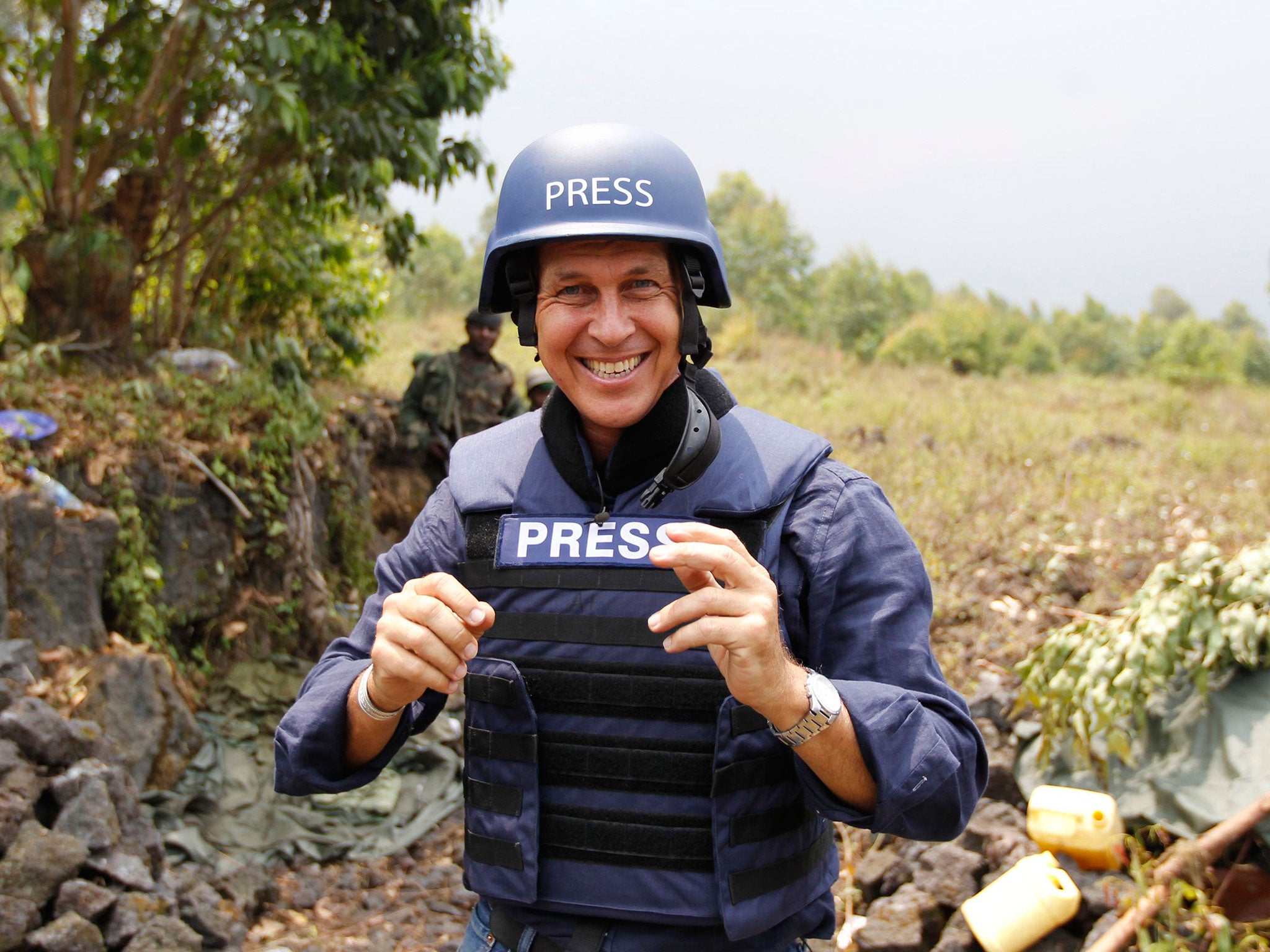Peter Greste released: Australian Al Jazeera journalist deported by Egypt - but what of his colleagues?
Australian Peter Greste has been released and deported. Fellow prisoner and Canadian citizen Mohamed Fahmy may follow. But the fate of their Egyptian Al Jazeera colleague Baher Mohamed is uncertain. Maram Mazen reports from Cairo

Egypt today released Al Jazeera journalist Peter Greste, deporting him back to his native Australia after he spent 400 days in jail following his arrest alongside two others while on a temporary assignment. Reports suggested his colleague, dual Egyptian-Canadian citizen Mohamed Fahmy might soon follow. But the fate of Egyptian national Baher Mohamed remained uncertain.
Mr Fahmy, the channel’s bureau chief, was sentenced along with Mr Greste to seven years in jail in June, while Mr Mohamed, a producer, was sentenced to 10 years.
The three were accused of spreading false news and supporting the Muslim Brotherhood. Human rights groups have criticised the trial as a sham, saying no credible evidence has been produced. The arrests have been widely seen as politically motivated, with Egypt punishing the Qatar-funded Al Jazeera for its country’s perceived support for the Muslim Brotherhood.
“We will not rest until Baher and Mohamed also regain their freedom,” Mostefa Souag, acting director general of Al Jazeera Media Network, said in a statement today. “The Egyptian authorities have it in their power to finish this properly today, and that is exactly what they must do.”
Mr Greste, who previously worked for the BBC, arrived in Cyprus tonight on his way back to Australia. His country’s Foreign Minister, Julie Bishop, said: “I spoke to Peter Greste shortly after his release. He was immensely relieved and he was desperate to come home to Australia and reunite with his family.”
His brother Andrew Greste wrote on Facebook: “We’re ecstatic that Peter has been released and we now ask if the world could respect his privacy, to give him time to appreciate his freedom before he faces the media.” And he added on Twitter: “Hard to believe but YES @PeterGreste is a free man. His butt has left Egyptian airspace yippeeeeee!!!!! Think I'll go and get drunk :):):)”
The arrest of the three men had stirred an international outcry. Mr Greste’s deportation was carried out in accordance with a law passed late last year to allow the government to transfer foreign convicts to their home country to resume serving their sentence or to be retried, according to state-run Ahram Online. Mr Greste and Mr Fahmy’s families requested the two mens’ deportations according to the law in early January, after they were granted a retrial on 1 January, but were denied bail.
Mr Fahmy, 40, has reported for CNN and the New York Times and was due to get married before his arrest, while Mr Mohamed’s wife gave birth to a child while he was in prison.
Mr Fahmy’s mother today appealed to Egyptian President Abdel Fattah al-Sisi to pardon her son. “It could take months before the retrial begins and possibly a year before we even reach a verdict,” she said.
A security official tonight told Reuters Mr Fahmy would soon be released to return to Canada. “We remain very hopeful that Mr Fahmy’s case will be resolved shortly,” the Canadian government said in a statement today, according to Reuters.
For Mr Mohamed, who only holds Egyptian citizenship, and who was sentenced to three years more than the other two, the future looks less certain, with no official word on his fate.
President Sisi said in July that he regretted that the Al Jazeera journalists had gone to court, adding that the trial had produced “very negative effects” against the country. Instead, they should have been directly deported, he said, making no reference to Mr Mohamed.
The three were arrested amid a diplomatic row between Egypt and Qatar, where Al Jazeera is based, following the July 2013 military overthrow of the Muslim Brotherhood’s Mohamed Morsi, Egypt’s first freely elected civilian president.
Current President Sisi, who was serving as Defence Minister at the time, led Mr Morsi’s ouster following mass protests during his first year in power.
In the aftermath of the overthrow of Mr Morsi, thousands of Brotherhood supporters were arrested. Hundreds died as security forces dispersed two sit-ins last August, and the Muslim Brotherhood was designated as a terrorist organisation
Egypt considers Qatar to be a supporter of the Muslim Brotherhood. Many Egyptians feel Al Jazeera’s Arabic channel, which has different programmes and scheduling to the English one, was biased in favour of the Brotherhood in its reporting.
But recent regional efforts to mend the tensions between the two countries may now be bearing fruit.
In December 2014 Al Jazeera shut down Al Jazeera Mubasher Misr, a channel owned by the network that covered only Egyptian news, a move that analysts said was a confidence-building measure. Earlier in the month, President Sisi met with a top Qatari envoy in talks sponsored by Saudi Arabia, which is mediating reconciliation efforts between the countries.
“It has become increasingly clear that the journalists have been used as political pawns in a dispute between the authorities of Egypt and the Qatar government, which owns the Al Jazeera network,” Hassiba Hadj Sahraoui, Amnesty International’s deputy director for the Middle East and North Africa said yesterday in a statement.
“It is unacceptable that the lives of these men have been so carelessly toyed with.”
Join our commenting forum
Join thought-provoking conversations, follow other Independent readers and see their replies
0Comments